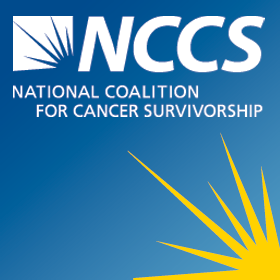 https://canceradvocacy.org/wp-content/uploads/2015/01/20years.gif
500
500
actualize
https://canceradvocacy.org/wp-content/uploads/2020/06/NCCA-Logo.png
actualize2015-07-27 13:11:352015-07-27 13:11:35Guest Video: Mary McCabe Discusses Survivorship Care Planning and the Delivery of Coordinated Care
https://canceradvocacy.org/wp-content/uploads/2015/01/20years.gif
500
500
actualize
https://canceradvocacy.org/wp-content/uploads/2020/06/NCCA-Logo.png
actualize2015-07-27 13:11:352015-07-27 13:11:35Guest Video: Mary McCabe Discusses Survivorship Care Planning and the Delivery of Coordinated CareYour generous year-end donation will be matched $1 for $1 DONATE
Quality Cancer Care
Our mission is to advocate for quality cancer care for all people touched by cancer, but what exactly is “quality cancer care,” and why is it essential for patients and the health care system? The National Academy of Medicine (formerly Institute of Medicine) and others have worked to define quality cancer care. NCCS has represented patient perspectives in these efforts and played a leadership role in building the evidence base for quality cancer care.
NCCS believes that cancer patients should have access to:
- Care that adheres to evidence-based guidelines;
- Comprehensive cancer care that assures treatment of the symptoms and side effects of cancer and cancer treatment;
- Coordinated care with strong communication among all providers and the patient;
- A written care plan detailing all elements of cancer care;
- Care in a clinical trial, if it represents a potential treatment option;
- Shared decision-making, including honest discussion about prognosis, the intent of therapy and the patient’s values and preferences regarding care;
- Support for psychosocial needs;
- Palliative care throughout the course of treatment, from diagnosis through end of life;
- End-of-life care, including but not limited to hospice care;
- Post-treatment survivorship care, including a survivorship care plan with a treatment summary and personalized recommendations for monitoring and follow-up care.
- Robust health information systems that support and improve all other aspects of quality cancer care.
Ensuring quality cancer care is complex, and there are many areas for improvement and policy action. An important gap is in treatment decision-making and coordination of the multiple facets of cancer care. To address this gap, NCCS advocates to ensure that every cancer patient has access to cancer care planning and coordination. These services provide cancer patients information to make informed decisions about treatments, encourage collaboration among the multi-disciplinary cancer care providers, and facilitate transitions from active treatment to survivorship.
 https://canceradvocacy.org/wp-content/uploads/2015/01/20years.gif
500
500
actualize
https://canceradvocacy.org/wp-content/uploads/2020/06/NCCA-Logo.png
actualize2015-07-27 13:11:352015-07-27 13:11:35Guest Video: Mary McCabe Discusses Survivorship Care Planning and the Delivery of Coordinated Care
https://canceradvocacy.org/wp-content/uploads/2015/01/20years.gif
500
500
actualize
https://canceradvocacy.org/wp-content/uploads/2020/06/NCCA-Logo.png
actualize2015-07-27 13:11:352015-07-27 13:11:35Guest Video: Mary McCabe Discusses Survivorship Care Planning and the Delivery of Coordinated Care
WCOE: Chemo for Late-Stage Cancers, Talking about Drug Prices, the Importance of Care Coordination, and the Rise of End-of-Life Care

Twenty Years Later Blog Series: Introducing the Seventh Principle of the Imperatives for Quality Cancer Care

WCOE: Susan Gubar Giving Thoughts of Thanks, Discovering Patients’ Wishes, JAMA Study on Advance Care Planning, and More

Medicare Proposal to Cover Advance Care Planning Conversations Marks an Important Step toward Patient-Centered Care

WCOE: Shared Decision-Making, Medicare Plans to Pay Doctors to Talk About End-of-Life Care, and Patient Advocate Meets with Congressional Representative

Discussing “Good” and “Hard” Deaths: Columnist Ellen Goodman’s Opinion Piece “How to Talk About Dying”


